Published
- 02:00 am
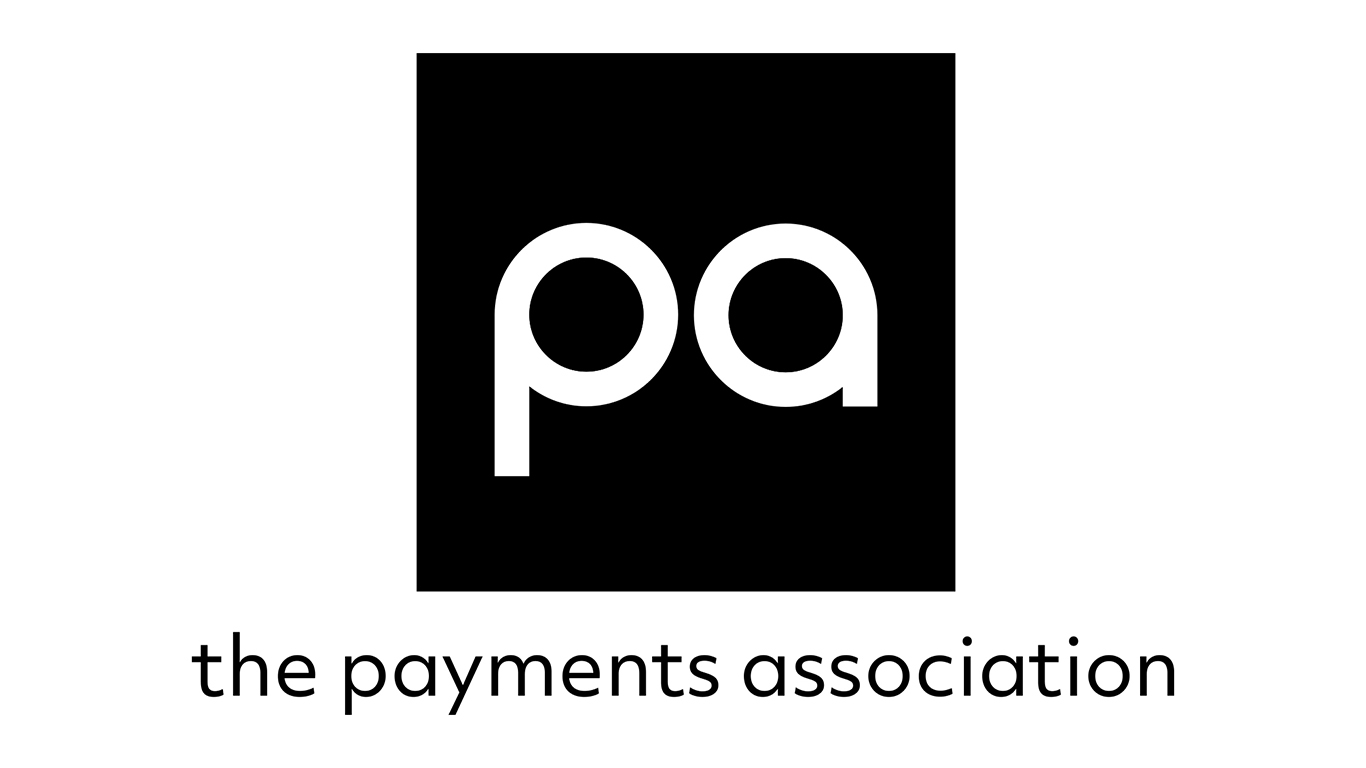
The Payments Association, which celebrates innovation and collaboration across the payments industry, has today announced the appointment of b.yond digital CEO, Neil Harris, as Chair of its Advisory Board, with Nathalie Oestmann, COO of Outlier Ventures, taking on the role of Vice Chair.
Commenting on the appointments, Tony Craddock, Director General of the Payments Association, said: “A community is only as strong as its leaders - they are the bedrock upon which our organisation stands, and we are confident these appointments will only serve to make The Payments Association a more effective community for all our members. I know that Neil and Nathalie will continue to add strength and depth to the community's leadership team.”
Succeeding Marion King, who held the position for two years, Neil will be responsible for guiding the direction of the association and promoting its vision to ensure a competitive and innovative payments market. This follows a report from Boston Consulting Group published last week, which projected the global fintech sector will grow sixfold by 2030 to $1.5 trillion, illustrating the importance of the sector’s leadership to take the industry forward.
Throughout his stellar career, Neil has exhibited a passion for levelling the playing field and making financial stability a reality for a great many individuals through invention, entrepreneurship and philanthropy. As well as inventing Banking Lite and founding several successful fintech businesses, he started a not-for-profit called ‘The Inclusion Foundation’, which is a community for fintechs who create better financial services propositions for underserved individuals and communities. Neil is the Project Mentor for Project Inclusion at the Payments Association and recently was awarded the PAY360 ‘Industry Contributor of the Year’, as well as ’Payments Pioneer’ and The Paytech Leadership Award.
Nathalie Oestmann also brings a wealth of experience to her new role, having held several senior positions at leading financial institutions, including American Express, Curve, Samsung Pay, and most recently at Outlier Ventures , the global leading Web3 accelerator and investor. A vocal figure throughout the fintech space, Nathalie has been recognised by ‘Top Women in Fintech’ and achieved a ‘Global 100 Women in Fintech’ award in 2017. Her experience in core operations such as people and legal in financial services makes her an ideal fit for the position.
The appointments recognise both Neil and Natalie’s contribution to the payments industry and their deep insight into the challenges, opportunities, and innovations happening across the market.
Commenting on his appointment, Neil Harris, said: “As leaders in the payments industry, I am honoured to accept the Chair of Advisory Board of the Payment Association, where we continue to shape an inclusive, diverse, competitive and innovative marketplace. I’m hugely proud that our industry provides convenient, inclusive and affordable access for better outcomes for all.”
Harris continues: “With the pace at which the fintech sector is racing, I look forward to us creating further growth and prosperity together, through our board of industry leaders; our community of members and the wider financial services ecosystem. To drive innovation, we must attract the best talent into the sector and the route to achieve this is through education, education, education!”
“I send my thanks to our outgoing chair, Marion King for her leadership and contribution, and with whom I enjoyed working as Deputy Chair over the last two years.”
Nathalie Oestmann added: “Through The Payments Association, our community and Advisory Board, we have a unique opportunity to build upon the considerable progress and collaboration between industry, government and regulators to support this exciting sector, and I am proud of the work of The Payments Association as a bridge to achieve this.”
The Payments Association is at the forefront of driving innovation across the payments landscape. It brings together key stakeholders to facilitate discussion and provide strategic guidance for banks, payment service providers, fintech companies and regulators.
The board’s representation includes senior members from the most influential companies within fintech, spanning the entire financial spectrum. This brings with it the ability to bridge the gap between the fintech and the traditional banking world and change the industry to create a more profitable and sustainable payments ecosystem.
Related News
- 06:00 am
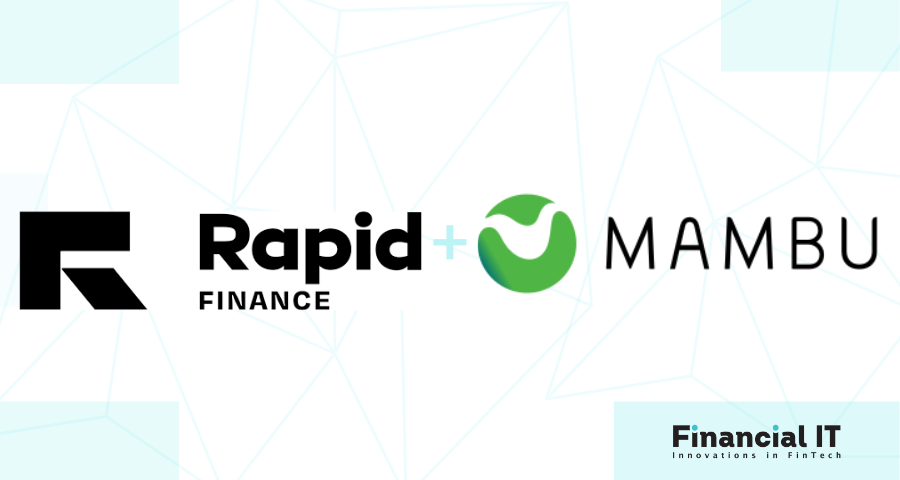
Rapid Enterprise, a division of Rapid Finance, a market leader in helping small businesses find sustainable and customized financing solutions through a fast and simple application process, announced today from Fintech Nexus USA that its cloud-native digital end-to-end loan origination system (LOS), Decisioneer, is now integrated with Mambu’s cloud-based lending platform.
Decisioneer provides borrowers and lenders alike with a seamless, customized user experience that significantly accelerates the loan decisioning and underwriting process. The platform helps borrowers gain access to needed capital through their lending partners quickly and efficiently.
For small business, commercial and consumer lending, Decisioneer provides lenders with real-time insights, including detailed financial profiles, debt-to-income ratio and cash flow analysis through direct, API-driven connectivity to multiple data sources, allowing lenders to automate workflows and streamline their origination process.
Facilitated and managed completely through Decisioneer, integrating with Mambu provides a seamless transition from loan origination to servicing. Decisioneer’s borrower portal and portfolio management module for loan officers and underwriters complements Mambu’s loan management system (LMS) to support ongoing customer relationship initiatives.
Rapid Enterprise is focused on providing integrated Lending-as-a-Service (LaaS) solutions to its enterprise clients. With this partnership, enterprise customers can leverage the Decisioneer LOS and Mambu LMS as a single, seamless cloud-native platform for their lending operations, powering customer intake, origination and servicing in a unified lending lifecycle platform.
“We're thrilled to partner with Rapid Finance, which has a strong track record of helping small businesses find sustainable and customized financing solutions,” said Andy Gregory, Mambu Head of Partnerships, North America. “Mambu's integration with the Decisioneer next-generation LOS platform enables a streamlined, digital experience for end-to-end lending to better meet the needs of our customers in the SMB market.”
“Through its proven, cloud-based platform, Mambu has established itself as a leader in driving technology innovation and bringing a more modern approach to financial systems,” said Will Tumulty, CEO, Rapid Finance. “That makes Mambu the perfect LMS integration partner for the Decisioneer LOS, which was built from the ground-up to provide lenders and their business banking customers with access to a scalable and flexible cloud-based platform and data to support smarter, faster lending.”
Related News
- 08:00 am

8fig has taken another leap forward in our mission to help a growing number of eCommerce sellers achieve sustainable growth despite a turbulent global economy, thanks to an immensely successful Series B funding round.
We at 8fig are excited to announce that we secured $140 million in funding at the close of our Series B funding round in April 2023. 8fig’s total funding to date is now $196.5 million.
The funding round, led by Koch Disruptive Technologies (KDT), included additional participation from existing investors Battery Ventures, Localglobe, Hetz Ventures, the Jesselson family, and Silicon Valley Bank, a division of First Citizens Bank.
With the completion of this latest round of funding, 8fig now has the financial freedom to continue to invest in small to medium-sized eCommerce businesses during a time when many online sellers are facing cash flow crunches. The global economy is facing obstacles of its own, and many eCommerce sellers find themselves without the financial support and resources they need to compete in today’s economic climate.
8fig provides a comprehensive solution to this widespread challenge. Our unique AI CFO technology, which was recently featured in TechCrunch, provides fast, continuous funding as well as serious financial tools for supply chain management, financial planning, and even freight and logistics coordination. Through our tried and tested strategy that combines high-level financial management and funding, we have helped countless eCommerce sellers reach their growth goals.
“During this period of economic uncertainty, eCommerce businesses are struggling to reach their full potential,” said Yaron Shapira, co-founder and CEO of 8fig. “The global macroeconomic challenges we are experiencing make it difficult for eCommerce business owners to access the resources they need to succeed. 8fig is providing these online sellers with the financial support and tools necessary to thrive in any economic climate. The latest funding round has proven that the market has great confidence in 8fig and the important role 8fig continues to play in the ongoing growth of eCommerce.”
Our success speaks for itself. To date, 8fig has provided online sellers with over $500 million. We increased our client base by 900% and our annual revenue by 800% in 2022 alone, while growing our global workforce from 30 to 90 employees in just one year.
“At a time when traditional banking is under pressure and credit is hard to come by for many businesses, 8fig remains committed to its mission of serving as a dependable partner to the estimated 2 million eCommerce businesses in the U.S.—and the company’s recent growth is a testament to that, said Shiran Shalev, a partner at Battery Ventures.
Our love of innovation and our desire to provide value to our customers has encouraged us to continue to add features and capabilities to our platform, while improving our offering and services. 8fig recently introduced a mobile app that allows customers to manage their funding plan on the go, as well as a freight management and payment feature.
We’re not stopping there, either. In the future, we plan to add enhanced financial management capabilities, banking solutions, and cash flow prediction models. 8fig’s platform will incorporate alerts and insights based on business performance and collaborate with eCommerce marketing agencies to build a tool that evaluates customers’ cash flow health and needs, lowering risk through actionable insights and alerts.
“8fig’s innovative approach to eCommerce, combined with its strong technology platform and experienced team, gives us great confidence in its potential for growth and success,” said Isaac (Itzik) Sigron of Koch Disruptive Technologies. “As eCommerce continues to expand rapidly, we believe that 8fig is well-positioned to address the evolving needs of entrepreneurs in this space. We look forward to working closely with 8fig to support its mission of helping eCommerce businesses thrive and scale.”
Related News
- 03:00 am
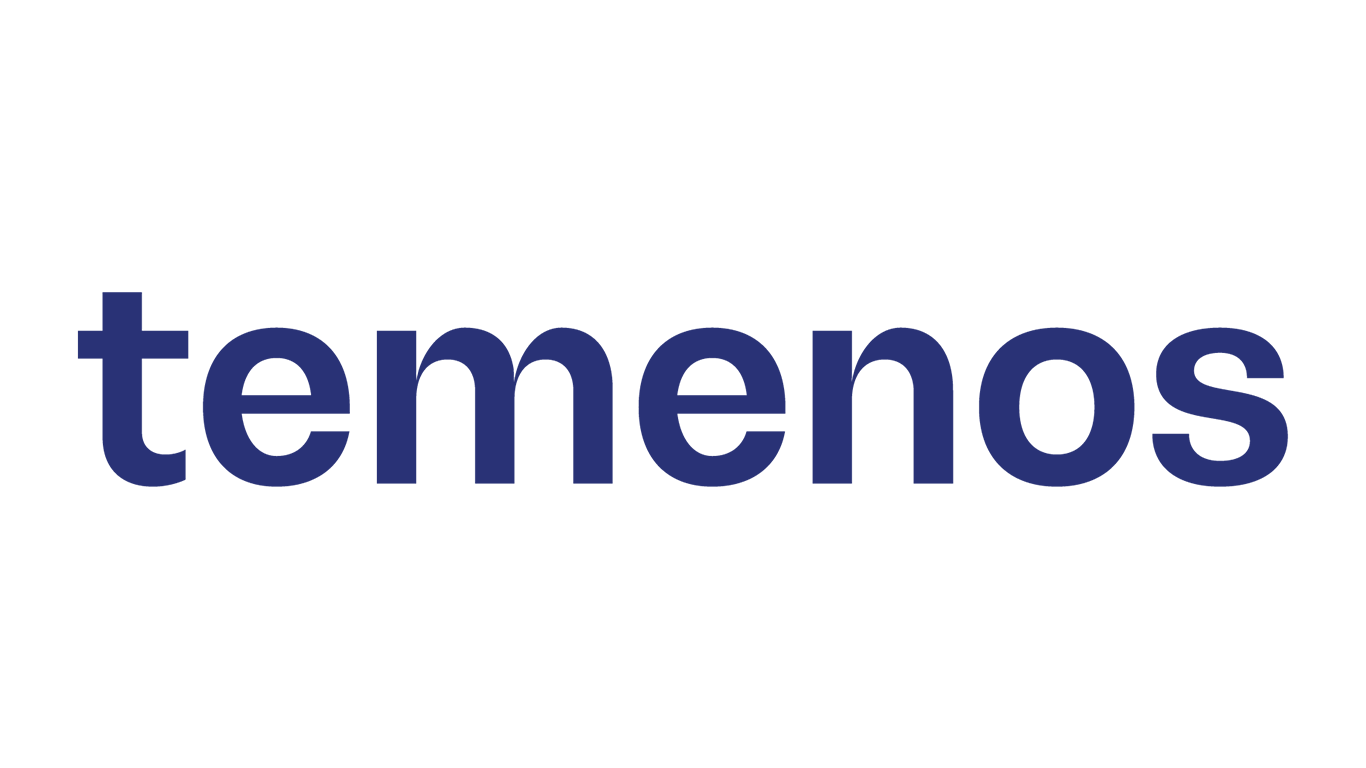
Temenos today announced new functionality in its Digital Wealth solution enabling banks and wealth management firms to elevate the digital experience with sophisticated investment advisory features, helping them engage and tap growth with high-net-worth clients.
Wealth management is the fastest-growing banking segment with a generational transfer underway and an estimated $81 trillion to be added to the wealth pool by 2026.
Temenos’ Wealth Advisory Group with over 40 of the world’s top private banks is meeting in Vienna at this year’s Temenos Community Forum to validate Temenos wealth strategy and discuss the future product roadmap.
Meghna Mukerjee, Strategic Advisor, Aite-Novarica Group, commented: “The next generation of high-net-worth individuals (HNW) has a digital-first mindset. With high levels of volatility and market uncertainly, there is an increasing need for curated digital servicing and digital advisory solutions that allow these HNW individuals to grasp the changing market dynamics quicker and give them greater control over their financial lives. Based on our research, Temenos’ Digital Wealth solution offers these types of powerful, hybrid modules that provide digitally augmented and at the same time personalized experiences.”
With the new Investment Advisory features of Temenos Digital Wealth, Private Wealth Managers (PWMs) can give clients instant, real-time visibility into their portfolio and streamline engagement with digital workflows. Clients can easily track portfolio health against investment objectives across a range of key metrics such as asset allocation, risk, and investment constraints. They can review their investor profile and adjust their target strategy. Clients can also receive and respond to investment proposals and connect virtually with their relationship manager with integrated video chats and co-browsing by leveraging Temenos Exchange partners – all within a mobile app.
Additionally, PWMs can leverage Temenos’ accelerator app, flexible components and low-code tooling to redesign the complete customer experience for their specific needs and apply their unique brand. When consumed as SaaS on Temenos Banking Cloud, the solution helps banks accelerate digital and reduce the cost of development.
Alexandre Duret, Senior Product Director, Temenos, said: “In the face of increased competition, the new advisory capabilities of our Digital Wealth solution provide established players the opportunity to stay relevant and expand their footprint with the new generation of High-Net-Worth customers. Importantly, the solution enhances the digital interactions while supporting a hybrid-model that ensures optimal engagement between client and their relationship managers.”
With clients including Schroders, Mirabaud, new digital challengers such as Alpian as well as the international division of a tier-1 US bank, Temenos is a proven and trusted platform for wealth management, verified against regulatory requirements in multiple countries and economic zones.
In 2022, Temenos was named a leader in the Forester Wave for Digital Wealth Management Platforms, positioned the furthest for its wealth management product strategy and strength of its offering. According to the Forester report, ‘Temenos stands out for its end-to-end digital wealth management capabilities’ and ‘excels in most areas of product functionality and has a roadmap and planned enhancements to ensure they will continue to do so.’
Temenos is the only banking platform readily available on all major public cloud providers for banks to run themselves or as a SaaS solution via Temenos Banking Cloud.
Related News
- 05:00 am

Feedzai, a leading provider of financial crime and risk management solutions, today announced significant enhancements to its RiskOps Platform, enabling banks to better protect their customers from a wide variety of financial scams. These new Feedzai ScamPrevent™ capabilities deliver industry-leading detection, classification, and interception of the widest variety of payment scams and financial fraud typologies.
Financial scams are an epidemic growing in both dollar volume and human impact. The FTC recently reported that between 2021 and 2023, losses from scams increased by 30% in the US. These losses are only the tip of the iceberg as globally only 7% of scams losses are reported, according to data from the Global Anti-Scam Alliance (GASA). As scammers now have access to generative AI using large language models (LLMs) to fashion increasingly sophisticated and realistic scams, these losses can only be expected to increase.
Most financial institutions employ multiple legacy point solutions that use rules-based approaches to identify different types of fraud, but fail to specifically target scams. These traditional approaches have three critical limitations:
- They are siloed by channel, so they are susceptible to fraud typologies that operate across multiple banking products or payment platforms.
- They identify fraud by either focusing on behavioural activity (such as biometrics, app and device usage patterns, malware incidence, and network activity), or financial activity (transactional data across one or more banking channels and platforms), but they don’t natively look at both together, which significantly limits the ability to rapidly diagnose a scam in progress.
- They don’t quickly evolve to protect against new types of fraud as scammers continuously change their tactics;
Feedzai’s RiskOps platform is the only solution in the industry that employs a unified AI model to build a 360-degree view of customer risk, monitoring a customer’s behaviour and financial activity across the widest span of banking channels. Feedzai’s new ScamProtect™ capabilities build on this unique RiskOps approach to enhance the platform’s ability to identify and intercept scammers before their crimes impact customers, with:
- Improved AI-based detection. Significant improvements to Feedzai’s AI engine, based on learnings across multiple geographies and financial institutions, enable improved scam detection with reduced false positives.
- Custom scam rules. New capability to add bank-specific scam detection rules and thresholds on top of out-of-the-box AI detection delivers a rapid and customized response to new scam attacks;
- Early intervention. Digital signals, including behavioural biometrics and other non-transactional patterns, may suggest a customer could be a scam victim prior to them actually making a payment. New Feedzai features empower banks to identify these signals and create intervention and education opportunities earlier in the risk lifecycle.
- Inbound payments. To benefit from a scam, a scammer has to send money to an account they can control. New features enable monitoring of inbound payments as well as outbound to give banks multiple opportunities to stop a scam.
- Extended scam reporting. Customizable scam classification, performance metrics, and reporting.
“Consumer losses from scams are expected to surge as countries introduce or expand instant payment channels – like the US will do this year with the introduction of FedNow,” said Pedro Barata, Chief Product Officer of Feedzai. “The human impact of scams is particularly high as scammers tend to target vulnerable groups – the elderly, the economically disadvantaged, immigrant communities, and youth. As it becomes faster and easier to make payments, there is a growing need for new solutions that enable scams to be detected and intercepted before any money moves. With our new ScamProtect™ features, Feedzai delivers the industry’s most comprehensive approach to scam prevention.”
Recent data from McKinsey shows that when a customer is impacted by a scam, it is a make-or-break moment for their banking relationship. Their research shows that the difference in Net Promoter Score (NPS) of customers that had a “good” experience versus a “bad” experience when impacted by fraud was a massive 132 points. This data strongly suggests that banks that succeed in protecting their customers from scams will increase customer satisfaction and retention, while those that fail will see increased churn.
Increasingly, consumers hold banks responsible for personal losses stemming from scams. A recent independent survey conducted by Censuswide on behalf of Feedzai found that in the US, 76% of respondents were very likely or somewhat likely to leave their bank if they were not refunded for losses they suffered in a financial scam. In the UK, existing rules making banks directly accountable for reimbursement of affected consumers are likely to be tightened later this year. Legislators in other countries are considering similar measures.
“In this environment of faster payments and more sophisticated scams, banks should look at proactive strategies to protect their customers from financial crime,” said Nuno Sebastiao, CEO of Feedzai. “We believe that banks which embrace a comprehensive RiskOps approach will outperform in customer satisfaction and retention while minimizing losses from financial crime.”
On June 14, Feedzai will host a webinar about the impact of scams on both banks and their customers, featuring financial crime thought leaders from GASA, Forrester, Which? and more.
Feedzai’s RiskOps Platform is available now.
Related News
- 05:00 am

Canoe Intelligence (“Canoe”), the financial technology company powering alternative investment intelligence, today announces a new client engagement with Munich-based SwanCap Partners GmbH, an independent leading investment boutique managing over €4 billion in AuM.
SwanCap is leveraging Canoe to automate and manage its document collection and data management processes, specifically for its capital calls, distributions, and account statements. SwanCap has implemented two of Canoe’s solutions for alternative investments:
- Canoe Connect: To automatically collect alternative investment documents from portals and email inboxes using API connectivity and deliver the aggregated documents to Canoe Intelligence (described below).
- Canoe Intelligence: To categorize, extract, and validate relevant private market investment data, to ultimately deliver clean, actionable insights to clients’ downstream systems.
Canoe’s technology will be instrumental in the transformation of SwanCap’s operational processes. Canoe’s seamless integration with SwanCap’s downstream systems will also ensure the right data is delivered to the right places and in a timely manner, eliminating additional manual steps in SwanCap’s workflow.
SwanCap is the latest addition to Canoe’s growing roster of European clients. Today, the firm works with over 200 family offices and institutional investors in North America, Europe, and Asia.
This news follows the announcement of Canoe's continued expansion in Europe with the recent opening of its London office following a record 2022 and Series B funding round led by F-Prime Capital with participation from Eight Roads.
“We are thrilled to welcome SwanCap on board as another prominent European client. At Canoe, we are proud that our technology is helping them scale their operational processes, reinforce their competitiveness and serve their clients more effectively” said Toby Bailey, Vice President of Sales, EMEA at Canoe Intelligence. “Since 2021, we’ve seen continued growth and have been onboarding new clients, including innovative investment managers like SwanCap, to streamline vital alternatives document and data workflows, which clearly demonstrates strong demand for our technology as we aim to further expand across Europe.”
Related News
- 02:00 am

Imperva, Inc., the cybersecurity leader that protects critical applications, APIs, and data, anywhere at scale, releases the 2023 Imperva Bad Bot Report, a global analysis of automated bot traffic across the internet. In 2022, nearly half (47.4%) of all internet traffic came from bots, a 5.1% increase over the previous year. The proportion of human traffic (52.6%) decreased to its lowest level in eight years.
For the fourth consecutive year, the volume of bad bot traffic -- malicious automated software applications capable of high-speed abuse, misuse, and attacks -- grew to 30.2%, a 2.5% increase over 2021. The staggering level of bad bot activity across the internet in 2022 was the highest since the creation of the Imperva Bad Bot Report in 2013. Malicious bot activity is a significant risk for businesses as it can result in account compromise, data theft, spam, higher infrastructure and support costs, customer churn, and degraded online services. Collectively, billions (USD) are lost annually as a result of automated attacks on organizations’ websites, infrastructure, APIs, and applications.
Documenting 10 Years of Bot Evolution and the Rise of Automated Attacks
For the past decade, the annual Imperva Bad Bot Report has provided security and business leaders with useful and practical information about the evolution of bot technology and automated traffic. Imperva was a pioneer in documenting these annual trends for the purpose of raising awareness about the business risk associated with bad bot activity.
Reflecting on the 10th anniversary of the Imperva Bad Bot Report, this year’s report documents milestones in the evolution of bad bot technology. Notable highlights include:
- The EarthLink Spammer, one of the world’s first botnets, was discovered in 2000. It was created by a single individual and sent over a million emails as part of a phishing scam.
- In 2014, Imperva monitored one of the first examples of bots exploiting mobile browser settings to more easily scrape data. This was an earlier indicator that bot operators were adapting for mobile web and application environments.
- In 2015, the sophistication of bad bots soared 11%. Bot operators used a single bot to cycle through many IP addresses to make a single request while disguising their identity.
- In 2016, as mobile device usage grew, bad bots quickly adapted. For the first time, mobile Safari was one of the leading self-reported user agents, while the volume of bots claiming to be mobile browsers increased 42.78%.
- In 2020 and 2021, bad bots became the pandemic of the internet as automation became more sophisticated. Through inventory hoarding and scraping, bots made it harder for humans to purchase gaming consoles or schedule COVID-19 vaccine appointments.
“Bots have evolved rapidly since 2013, but with the advent of generative artificial intelligence, the technology will evolve at an even greater, more concerning pace over the next 10 years,” says Karl Triebes, Senior Vice President and GM, Application Security, Imperva. “Cybercriminals will increase their focus on attacking API endpoints and application business logic with sophisticated automation. As a result, the business disruption and financial impact associated with bad bots will become even more significant in the coming years.”
Key Findings from the 2023 Imperva Bad Bot Report:
- Bad bots are increasingly sophisticated and harder to detect. In 2022, the proportion of bad bots classified as “advanced” accounted for more than half (51.2%) of all bad bot traffic. In comparison, the level of bad bot sophistication in 2021 was 25.9%. This is a concerning trend for businesses as advanced bad bots use the latest evasion techniques and closely mimic human behavior to evade detection by cycling through random IPs, entering through anonymous proxies, and changing identities.
- Account takeover (ATO) attacks increased 155% in 2022. Further, 15% of all login attempts in the past 12 months, across all industries, were classified as account takeover. Cybercriminals use bad bots to facilitate credential stuffing and brute force attacks, as automation can cycle through credentials quickly until successful. These attacks have the potential to lock customers out of their account, provide fraudsters with sensitive information, contribute to business’ revenue loss, and increase the risk of non-compliance.
- Bad bots target APIs to abuse business logic and compromise accounts. In 2022, 17% of all attacks on APIs came from bad bots abusing business logic. A business logic attack exploits flaws in the design and implementation of an API or application for the intent of manipulating legitimate functionality to steal sensitive data or illegally gain access to accounts. Further, 35% of account takeover attacks in 2022 specifically targeted an API. When APIs are called programmatically, attackers can easily automate the process of attempting to takeover an account without triggering any alarms.
- Travel (24.7%), Retail (21%), and Financial Services (12.7%) continue to experience the highest volume of bot attacks. Meanwhile, Healthcare and Law & Government experienced a considerable jump in the volume of bad bot attacks in 2022. Gaming (58.7%) and Telecommunications (47.7%) had the highest proportion of bad bot traffic on their websites and applications. Taken together, bots are a growing problem for all industries.
- Majority of countries have a bad bot problem. Of the 13 countries analyzed in the report, more than half (7) had bad bot traffic levels that exceeded the global average of 30.2%. Germany (68.6%), Ireland (45.1%), and Singapore (43.1%) ranked in the top three, while the US also exceeded the average at 32.1%.
- Browser settings disguise bad bot behavior: One-in-five bad bots used Mobile Safari as their browser of choice in 2022, up from 16.1% in 2021. Updated browsers offer privacy settings that obfuscate bad bot behavior, making it harder for organizations to detect and stop automated traffic.
“Every organization, regardless of size or industry, should be concerned about the rising volume of bad bots across the internet,” continued Triebes. “Year-over-year, the proportion of bot traffic is growing and the disruptions caused by malicious automation results in tangible business risks -- from brand reputation issues to reduced online sales and security risks for web applications, mobile apps, and APIs. Businesses need to act now and invest in bot management and online prevention that can identify and stop sophisticated automation that targets APIs and application business logic.”
Additional Information:
- Download a copy of the 2023 Imperva Bad Bot Report for additional insights on bot behavior and online fraud.
- See how Imperva Advanced Bot Protection and Online Fraud Prevention solution can protect websites, mobile applications, and APIs from automated attacks and fraud without affecting the flow of business-critical traffic.
- Register for the webinar, “Bad Bots: Balancing Protection Against Customer Experience”, on May 18, 2023 to learn how to mitigate automated attacks without impacting the customer experience.
- Read the Imperva Blog for the latest product and solution news, and threat intelligence from Imperva Threat Research.
Related News
- 02:00 am
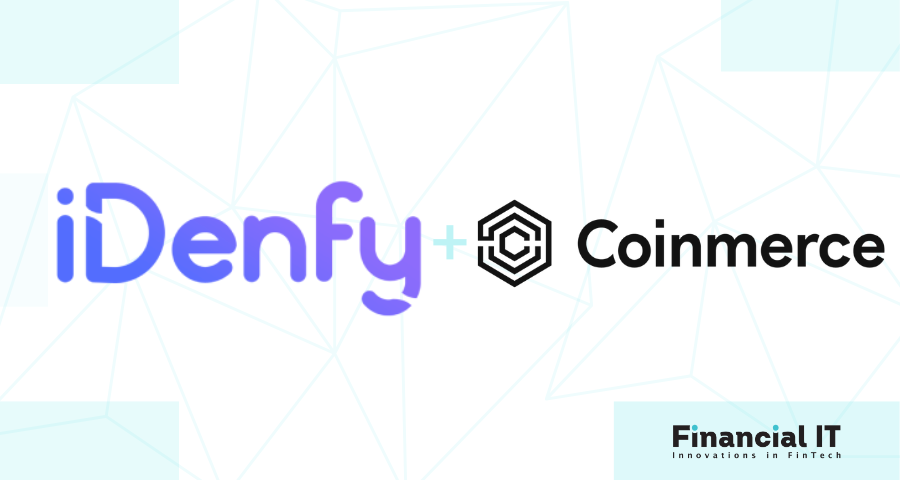
iDenfy, the digital fraud prevention and identity verification startup, broke down the news about a partnership with Coinmerce, a user-friendly trading platform offering to build a crypto income. The duo will ensure a safe environment for new users on Coinmerce, who’ll be asked to complete quick ID verification at registration.
If we went a few years back, many members of the digital asset community strongly opposed the idea of putting stricter regulations on the cryptocurrency sector. Since then, a lot has changed, making Ponzi schemes and other crypto scams a thing of the past.
Let’s look at the recent data from the Federal Trade Commission (FTC): cybercriminals stole over $1 billion in crypto assets, affecting more than 46 thousand people last year. While the added security controls in crypto regulations help prevent fraud, iDenfy argues that security measures, such as identity verification, are vital for crypto platforms to avoid online crime.
Agreeing with this approach, Coinmerce sees a positive change in developing clear regulations in the crypto industry. The European trading platform offers an accessible, quick, and safe environment to buy, sell, swap, and store hundreds of cryptocurrencies with multiple payment methods. According to Coinmerce, it strives to be the most comprehensive platform to build a passive crypto income by offering Europe's highest Staking and Earn percentages for a wide range of assets.
With various transaction funds flowing on the crypto platform, according to Coinmerce, it’s become more challenging to manage large amounts of data safely, leading the company to search for new, more efficient ways to protect its customers via identity verification. This is where iDenfy comes in handy with its AI-powered, four-step biometric identity verification solution. Now, the company is responsible for ensuring a secure and frictionless customer onboarding experience while guaranteeing Know Your Customer (KYC) and Anti-Money Laundering (AML) compliance for Coinmerce.
iDenfy’s mission is to minimize the abandonment rate during the new account registration process and, this way, help Coinmerce scale easier, keeping better registration rates and more revenue. As claimed by iDenfy, authenticating customers through biometric ID verification helps Coinmerce gain confidence and reach maximum security potential. Currently, it takes a few steps to complete the registration on the crypto platform, and iDenfy provides a smooth and secure verification journey backed with 3D liveness detection.
The technology validates a user's physical presence, ensuring that only real faces and not static photos are accepted during the onboarding. This way, Coinmerce can rest assured that fraudulent attempts to pass the verification will be rejected. The decision to partner with iDenfy enabled a seamless ID verification workflow, lowering the barriers for Coinmerce to welcome new customers faster. According to the crypto platform, the newly implemented ID verification is what crypto users expect when registering to Coinmerce.
“Our team is very excited to team up with a business that understands the value of security and convenience. From now on, iDenfy helps us maintain a secure, hassle-free account opening process for every user without compromising their experience. For that, we’re grateful.” — noted Luc Smits van Oyen, the co-founder of Coinmerce.
“Having a proper identity verification system minimizes the chances of fraudulent break-in attempts. Using biometric identity verification brings confidence, ensuring fraud is out of the picture. That’s why we're happy to partner with Coinmerce and help maintain a safe environment for its crypto community.” — said Domantas Ciulde, the CEO of iDenfy.
Related News
- 01:00 am
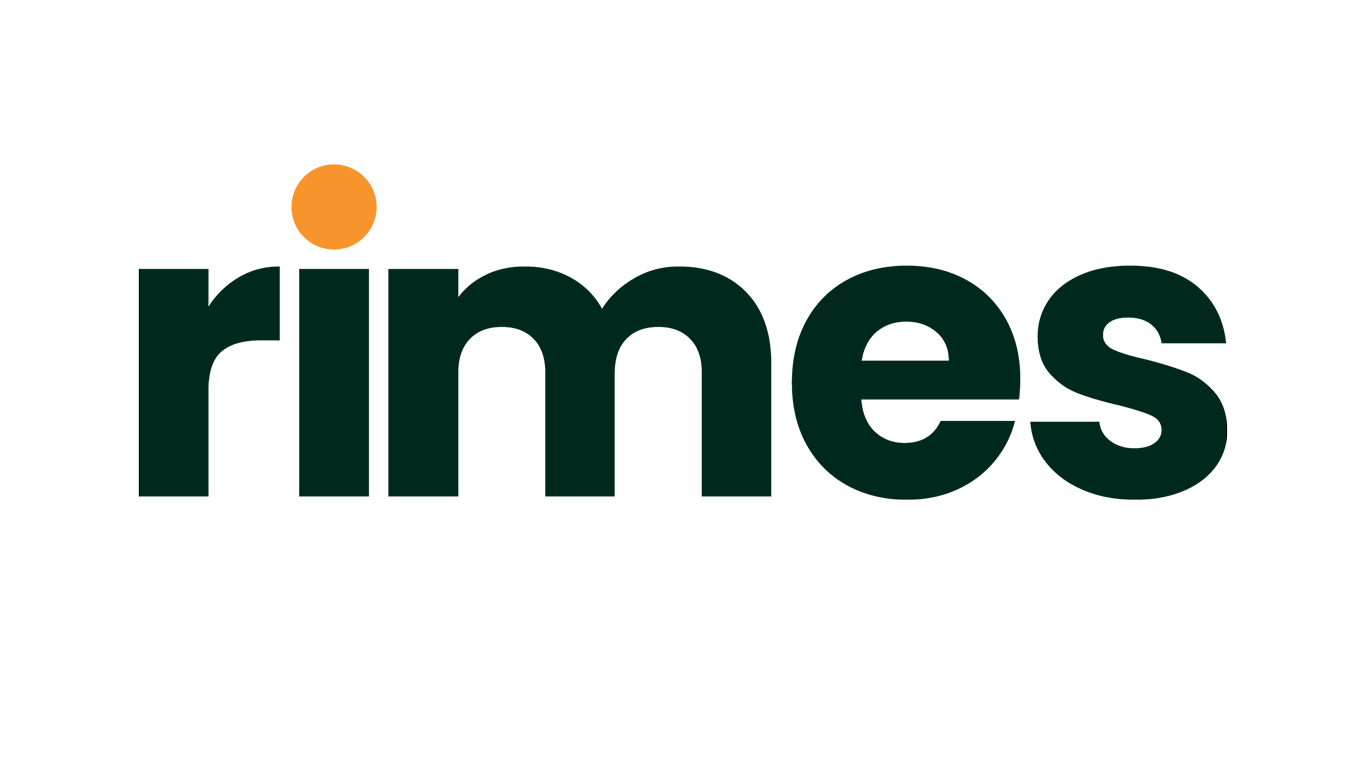
Pzena Investment Management, LLC, a US-headquartered investment firm, is implementing Rimes' investment intelligence solution Matrix to support its efforts to streamline operations, mitigate risk, and enhance its portfolio optimization capabilities. With the increasing demand for customized versions of core product offerings, Pzena sought a systematic solution that would eliminate manual intervention and provide a scalable solution that could integrate seamlessly with existing systems.
The Matrix platform simplifies the management of complex, multi-level investment and product structures, clarifying portfolio management and investment decisions and providing Pzena with precisely what they were looking for. While Pzena's needs were straightforward, the Matrix platform's portfolio optimization capabilities also allow managers to select the most favourable asset distribution strategy from a broad and diverse range, including the tangible and illiquid portfolios being considered, according to agreed performance and duration objectives. This approach maximizes factors such as anticipated returns and minimizes financial, regulatory or reputation risk exposure.
Brian Mann, Chief Data Officer and Director of Operations at Pzena Investment Management, LLC, said, "Managing complexity is always a challenge. Therefore, our aim is to create an operationally efficient, data-enabled technology environment. In our evaluation of various solution providers, we were particularly impressed with the Matrix portfolio optimization module, which enables us to consistently monitor and adapt customized portfolios to align them with agreed-upon client-specific objectives. We believe this will make a major difference in our ability to support future growth in a highly competitive marketplace."
Stuart Plane, MD and Head of Investment Intelligence Solutions at Rimes concluded. "The relationship with Pzena Investment Management, LLC further demonstrates the flexibility and broad appeal of the Rimes IDM solution. The implementation is well underway and is developing into a strong and mutually supportive business partnership."
Related News
- 02:00 am

Lanistar, a fintech founded in the heart of London, has seen rapid growth and in recent months has added an additional two offices to its roster - Dubai and Sao Paulo. Now operating in three continents, Lanistar’s 2023 growth plan looks to be in full swing.
With its offices now located across the globe, Lanistar is poised for continued growth, showcasing the company's worldwide reach and commitment to expanding its operations in order to better serve its customers in its target markets.
By establishing a foothold in new regions, Lanistar can tap into the thriving customer bases located in these regions, as well as gain insights on global audiences- a valuable opportunity, considering that many fintechs on the market today rarely venture outside of their home continent.
With these factors combined, it is likely we will see Lanistar continue to evolve in 2023. Direct access to audiences in Brazil and the Middle East, two of the biggest proprietors of fintech and alternative financial technology, puts the fintech in prime industry territories.
According to reviews left on platforms like Glassdoor, Lanistar is a positive space for employees. It has been described by staff as an “open and welcoming atmosphere” that “has been instrumental in my professional growth and development”, with “a diversified culture” where “every department is gelled to be the most efficient part of something bigger”.
Positive workplace environments have frequently been shown to increase productivity, which is crucial for brands looking to grow and expand. Lanistar, with its office designs and positive connections with employees, has therefore puts itself in a position where this growth can be achieved.
Below captures Lanistar’s new location in Dubai - a thriving office space, despite its relative infancy.


The above picture shows a glimpse into life in the London office, with its swing chairs and neon wall signs bringing vibrancy to the space that reflects the brands individual way of operating and commitment to crafting a positive workplace environment.
The picture below is a snapshot from the Sao Paulo office, exemplifying the growth undertaken by Lanistar so far in 2023.










